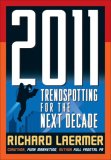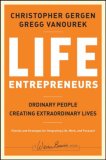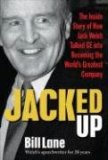Secret Strategies Of The Gurus: Guru 1 - Bill Gates As A Small Business Entrepreneur
April 19, 2023
Strategies are strategies. Dismiss for a moment from your mind what some people are saying about Bill Gates’ offensive practices he used to transform himself from a small business entrepreneur to a titan in the business world. There are yet honest-to-goodness strategies we can glean from his sleeves. We can study, learn from them and possibly apply them in our own home based business. Upon this premise that this article was written.
Strategy of Bill Gates - Have a Vision:
At the outset, I will lay down the results of my research on one secret strategy of Bill Gates. He used the same strategy to jump-start his small business to today’s business behemoth. Based on my research, the strategy of Bill Gates is grounded upon the following:
“Have a VISION of what you want to achieve and hold on to that vision come hell or high water.” His vision was: “A Personal Computer on every desk.”
Almost everybody is familiar about how once upon a time the small business entrepreneur Bill Gates secured mighty IBM’s contract to supply the latter’s operating system. When he was negotiating with the IBM people, he had no operating system as yet. He was able to buy a Disk Operating System or DOS for $50 thousand. In the end, he got the contract. Why?
Bill Gates was guided by his vision - that every desk all over the world should have a computer on it. This vision enabled him to provide IBM with a DOS operating system and have control over it including to whom he wanted it sold to.
Beginning Entrepreneur:
Before he became an entrepreneur, Bill Gates had nurtured the vision that software will one day rule the world. During high school he spent many late nights with friend Paul Allen tinkering with the school’s computer system.
He dropped out of college after completing his junior year at Harvard. Instead, he and his bosom friend Paul Allen set up a small business - a software company - in far away New Mexico. This move was in accordance with his vision.
His vision became clearer as he moved from a total newbie to one with a small business to keep. His vision was clothed in clearer terms, as he negotiated the DOS deal with IBM.
Better late than never:
Bill Gates’ company ultimately became the leader in the software arena. During the first half of the 1990’s - 1993 to be exact - he was among the last of the software titans to acknowledge the future significance of the Internet.
But once he did realize that indeed Internet was the wave of the future, he had the tenacity to reshape his vision. His vision retained its old flavor - that is, software dominance in commerce, industry and in every field. It was rehashed in his own words as follows:
Read more
5 Tips to Professional Development & Career Advancement
April 17, 2023

Professional development is critical to career advancements in the form of promotions, raises and new opportunities. A continuous quest to learn new skills and techniques is important, because it is through these new abilities that you will position yourself for offers of greater responsibilities and leadership tasks in the workplace. For example, since most advanced leadership positions come with profit and loss responsibility (if you’re in marketing), you would benefit greatly if you became familiar with financial forecasting and planning. Armed with some financial acumen, you may be able to manage an entire marketing campaign — not only in relation to leads and sales, but also in relation to the overall profitability of a project.
So, how does someone go about learning these new skills and developing professionally? Well, the default answer — and it’s usually a good one — is to visit your human resources officer and explore any professional development paths offered at your company. Certainly, this is a great place to look, but if access to this professional development knowledge were simple, everyone would be in charge — right? Additionally, what about smaller organizations in which HR departments are not as advanced or even available? Follow these suggestions for seeking out viable professional development opportunities and take matters into your own hands.
I. Business Networking Events
Before you rush out to sign up for all the big industry conferences and seminars, consider a look in your own backyard, as you will often find an array of networking and business development events. Local chamber of commerce functions, for instance, are great places to meet new contacts who can help expand your business horizons and knowledge base or provide prospective leads for your organization.
Special-interest venues, such as venture capital forums, provide opportunities to meet new people and foster new business knowledge and skills. These avenues are also far more convenient and may be more attractive to your employer than it would be to send you to the big out-of-town national workshop. If your organization has not suggested that you attend one of the bigger out-of-town deals, asking for a four-figure budget (registration, plane ticket, hotel, meals, etc.) may be met with some doubt, particularly if it seems like an excuse to party on the company’s dime rather than to build new relationships and business skills. Your organization may have a more flexible budget for the occasional luncheon and could be more receptive to you being away from the office for two hours than for two days.
Even if your employer will not front the bill for these events, they are affordable enough for an individual and can be well worth the investment. Of course, if some real professional development arises from these smaller local events, it may be easier to get the company to send you out to Las Vegas for a national session.
II. Hit the Books
Bookshelves are teeming with books and periodicals that can help your professional development. More often than not, you simply have to look to the New York Times’ best-seller list to find a handful of the most current business and professionally focused reading material to peruse. Another idea is to specifically identify an area you would like to work on and select a book that addresses that subject. Reading one book per month will greatly improve your knowledge and your professional skills. Many of these books are relatively easy reading, and don’t feel discouraged if some of the material is not immediately processing or if you are struggling to apply the new techniques at work. Situations will arise, weeks or months after reading the book, to trigger the knowledge.
It’s also wise to not force your new knowledge into work situations. In most cases, even though you are excited to apply the fruits of your reading, when the application is forced, you may take actions that you don’t fully understand, which is bad. Additionally, it may bother people, especially when they see you reading a book and a week later you are spewing quotes as if you are the new master of all. Finally, consider subscribing to a couple of special-interest trade magazines or journals that fit the bill — they often provide consistent reading and are a great source for professional development ideas.
III. Back to School
Going back to school to get your master’s degree is certainly not a bad idea, but it may not be the answer for many of us. To save some money and to remain employed, visit the local universities or community colleges in your area — many offer evening or weekend courses that cover many topics, from business management to web site development or check Online MBA Schools.
Read more
Five New Business Books - April 14th 2008
April 15, 2023
Here at Cultivate Greatness, I receive tons of business books for review, sometimes more than I can possibly read… but, I want to make sure that you guys get the same benefit of knowing which business books are in the pipeline, that you may want to pick up.
Since August 2007, I have received well over 200 books, and so, each week, I would like to go over a quick review of each new business book that I have and share the business book resource with you. There are some great books here! Roll over the images to get more information about each business book!
 2011- Trendspotting for the Next Decade by Richard Laermer.
2011- Trendspotting for the Next Decade by Richard Laermer.
In this fast and furious time machine of a book, Richard Laermer shows you how to use-and in some cases abuse-the trends of the next decade (or two) that really matter. As an author with a functional crystal ball, a veteran marketing innovator, and media master, Laermer foresees a fabulous future-if you start planning for it today.
2011: Trendspotting for the Next Decade is packed with eye-popping predictions (and realities) on how you’ll live, work, play, buy, sell, talk, text, laugh, and more. You’ll discover how miniscule attention spans will increase a need for velocity…how to work while you’re sleeping…how to wash off mediocrity…and why today’s communication devices will become obsolete. With 2011you’ll learn how to participate in change instead of trailing it.
 Life Entrepreneurs - by Christopher Gergen & Gregg Vanourek
Life Entrepreneurs - by Christopher Gergen & Gregg Vanourek
A new generation of “life entrepreneurs” is emerging: people who apply their vision, talents, creativity, and energy not only to their work but to their entire lives, changing the world for themselves and those around them.
In this book, successful entrepreneurs Christopher Gergen and Gregg Vanourek draw on numerous interviews with fifty-five leading entrepreneurs worldwide as well as the wisdom of multiple thought leaders to provide vivid examples, moving vignettes, concrete frameworks, and practical strategies for revving up our work and play through entrepreneurial leadership. This book starts by providing strategies for integrating life, work, and purpose and ends by capturing the implications of the current entrepreneurial boom for our workplaces, learning institutions, communities, and families.
 Jacked UP by Bill Lane- The inside story of how Jack Welch talked GE into becoming the world’s greatest company.
Jacked UP by Bill Lane- The inside story of how Jack Welch talked GE into becoming the world’s greatest company.
Bill Lane was Jack Welch’s speechwriter for 20 years. In the first book by a GE insider, Lane shows that the real secret to Welch’s immense success as a leader was Welch’s ability as a master communicator. Welch launched a communications revolution that took GE from a ponderous supertanker of a company, to what Welch called a high speed “cigarette boat” capable of radical moves and rapid learning from the best institutions in the world.
You’ll learn Jack’s simple, often brutally enforced guidelines for “making a great pitch”, and how Welch practiced them himself in his memorable appearances before employees, financial analysts and customers-and his zero-tolerance of BS. You’ll witness laugh-out-loud-funny cameo appearances from boldface names like Southwest Airlines Herb Kelleher, Don Imus, Jack’s ex-wife Jane Welch, Conan O’Brian, and “Triumph, the Insult Comic Dog”. And you’ll understand exactly how every leader can master the art of communication, to teach and inspire, shock and provoke, all at the same time.
Become a Lifestyle Entrepreneur: Complete Guide and 40+ Resources
April 9, 2023
If you are — or would like to be — an entrepreneur, yet you’d be happy to earn enough to live the life you want rather than becoming filthy rich, lifestyle entrepreneurship might be a good fit for you.
Lifestyle entrepreneurs will generally base their ventures around time minimalism, or something they love, even if there are more profitable (but more time-consuming, or less interesting) options available.
The goal of a lifestyle entrepreneur is not to amass a huge fortune, but instead, to achieve certain definable goals and, beyond that point, to ensure business does not interfere too much with the enjoyment of those goals.
In this article, I’ll be outlining the primary steps to becoming a lifestyle entrepreneur, followed by 40+ educational and practical resources you can use to get started.
The 3 types of lifestyle entrepreneur
Time minimalists. This method is all about taking much of the time commitments out of owning a business and earning an income. This is usually achieved through elimination, outsourcing, the 80/20 principle, simplicity and automation, or through focusing on ’set it and forget it’ products, like eBooks or drop-shipped products.
Example: Doug Price, who created ProSoundEffects.com. His PPC advertised site sells audio libraries at several hundred dollars a pop and earns over $10,000 a month with under two-hours of maintenance work each week. The business allows Doug to spend plenty of time pursuing his two primary passions: music and travel.
Nomadic entrepreneurs. While the nomadic lifestyle entrepreneur isn’t necessarily working less than anyone else, the nomad’s number 1 aim is freedom of location: an anywhere work style. Work should enable travel, not confine it to one weekend each year.













